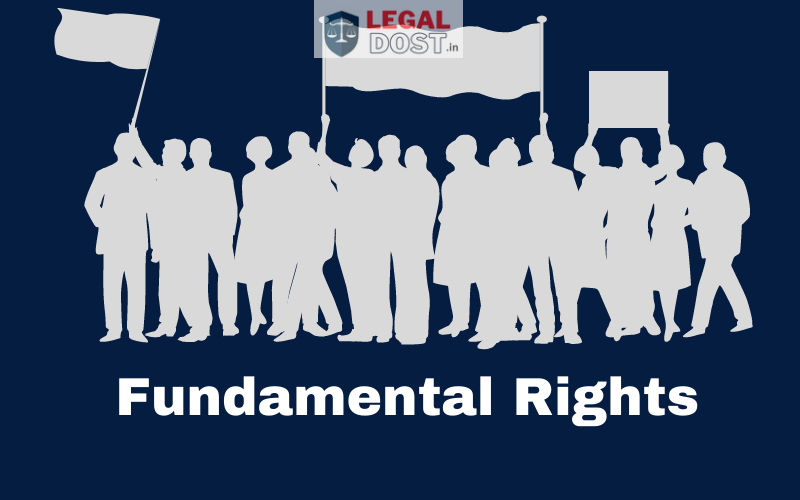As a citizen of India, you have certain fundamental rights that are protected by the Constitution. These rights include the right to freedom of speech, the right to equality, the right to life and personal liberty, and the right to freedom of religion, among others. However, these rights are not always easy to defend and uphold. The legal system in India can be complex and confusing, and it can be difficult to know what to do if your rights are being violated.
In this post, we will provide a guide to understanding the legal system in India and how you can defend your fundamental rights. We will cover topics such as:
- The role of the Constitution in protecting your rights
- The different levels of the legal system in India
- How to file a complaint if your rights are being violated
- Tips for navigating the legal system in India
Let’s get started!
The Role of the Constitution in Protecting Your Rights
The Constitution of India is the supreme law of the land. It outlines the fundamental rights that all citizens of India are entitled to, as well as the duties and responsibilities of the government. These rights are guaranteed by the Constitution and cannot be taken away by any government or individual.
Some of the most important fundamental rights that are protected by the Constitution include:
- The right to equality: This includes the right to be treated equally before the law and to be free from discrimination on the basis of race, religion, caste, sex, or any other grounds.
- The right to freedom of speech and expression: This includes the right to express your opinions freely, as well as the right to access and disseminate information.
- The right to life and personal liberty: This includes the right to life and the right to be free from arbitrary arrest or detention.
- The right to freedom of religion: This includes the right to practice and propagate your religion freely.
These rights are not absolute and can be restricted if they pose a threat to the public order or national security. However, any restrictions must be reasonable and in accordance with the principles of natural justice.
The Different Levels of the Legal System in India
The legal system in India is divided into three levels: the Supreme Court, the High Courts, and the District Courts. The Supreme Court is the highest court of appeal in the country and has the power to interpret the Constitution and uphold the fundamental rights of citizens. It is composed of the Chief Justice of India and a maximum of 31 other judges.
The High Courts are the highest courts in each state and are responsible for the administration of justice in the state. They have the power to hear appeals from the District Courts and to issue writs (legal orders) to enforce the fundamental rights of citizens.
The District Courts are the lower courts in each state and are responsible for hearing cases related to criminal offenses, civil disputes, and family matters. They have the power to issue orders and judgments in these cases.
How to File a Complaint if Your Rights Are Being Violated
If you believe that your fundamental rights are being violated, there are a few steps you can take to file a complaint.
First, try to resolve the issue informally by speaking with the person or organization that is violating your rights. This may be enough to resolve the issue.
If this does not work, you can file a complaint with the relevant authorities. This could be the police, the Human Rights Commission, or the National Commission for Women, depending on the nature of the violation.
You can also file a writ petition in the High Court or the Supreme Court to seek legal remedies for the violation of your rights. This is a more formal process and requires the assistance of a lawyer.
If you decide to file a writ petition, you will need to provide evidence to support your claim. This could include documents, witness statements, or any other relevant materials. You will also need to explain how your rights have been violated and what legal remedies you are seeking.
It’s important to note that the legal process can be slow and costly, so it’s important to carefully consider your options before proceeding.
Tips for Navigating the Legal System in India
Here are a few tips to help you navigate the legal system in India:
- Seek legal advice: It’s always a good idea to consult with a lawyer before taking any legal action. A lawyer can help you understand your rights and the legal remedies available to you.
- Gather evidence: As mentioned above, you will need to provide evidence to support your claim. Make sure to gather all relevant documents and witness statements before filing a complaint.
- Be patient: The legal process can be slow, so it’s important to be patient and keep track of the progress of your case.
- Keep copies of all documents: Make sure to keep copies of all documents related to your case, including any letters, notices, or court orders. This will help you stay organized and keep track of your case.
In conclusion, it’s important to understand your fundamental rights and how to defend them. The legal system in India can be complex, but with the right knowledge and resources, you can protect your rights and seek legal remedies if they are being violated. Remember to seek legal advice, gather evidence, and be patient as you navigate the legal process.
Bibhu Mishra is a prolific writer who has published many books spanning various genres. He is a legal enthusiast and an avid researcher of cutting-edge technology, diving into fascinating realms to bring captivating narratives to life.



